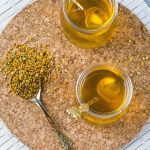Procream, the first and most important food of our lives
How many types of milk do you know? Don't rush to answer before you think about how big the shelf is in the supermarket fridge. Well, there is cow's milk, goat's milk, sheep's milk but in recent years consumers have also been favouring milk from plant sources. Thus, almond milk, soy milk and coconut milk can now be found on the market. But let's start from the beginning. The first milk the human body tastes is the milk it receives through breastfeeding a few hours after birth. As you have naturally erased the taste of it from your memory, but this milk is called colostrum (Latin: colostrum, and ancient: pyar) and is a concentrate of valuable nutrients.
In fact colostrum or mannitol is the first substance to be produced in the mammary glands of all mammals after birth. The newborn consumes this important, milk-like food in the first few hours of life before true milk is produced and consumed. It is rich in nutrients that make it the first and most important nutritional source for the development of the newborn's immune system in the early stages of life.
Colostum VS common milk
Colostrum is similar to milk, but contains many important biological factors that are either not found in milk or are found in much smaller quantities. Compared to milk, it is higher in protein and lower in lactose. The changing composition of colostrum and mother's milk reflects the changing needs of the baby as it grows from a few hours to a few days old.

These are some of the unique components of colostrum:
Milk fat and fat-soluble vitamins: The milk fats in colostrum are in high content. In essence, they become carriers of fat-soluble vitamins, i.e. they are richer in vitamins A, D, E and K than regular milk.
Immunological factors: Colostrum is rich in hormones and proteins that help the newborn to fight pathogens. It is a source of immunoglobulins, which have antimicrobial and other protective biological activities. The immunoglobulins in colostrum provide passive immunity to the newborn and protect it from intestinal microbial infections. Other immune factors found in this milk are cytokines. These substances play an essential role in the activation of the immune system, especially of white blood cells. In addition, to date, about 20 different antibodies against various microbes such as E. coli, salmonella, streptococcus, staphylococcus, Helicobacter pylori, etc. have been identified in colostrum.
Growth factors: The growth factors in colostrum are proteins and hormones, such as growth hormone, that stimulate the growth of new cells. Other insulin-like growth factors are also included. These help skin cells to grow and develop, regenerate tissues throughout the body, promote blood clotting and direct the storage of glucose or sugar in the blood as glycogen.
Antioxidant agents: At birth, the newborn baby is abruptly exposed to ambient oxygen as soon as it leaves the womb. In addition, during the neonatal and infancy period, the body's natural antioxidant mechanisms are not fully developed. Colostrum contains many antioxidant factors in both enzyme and non-enzyme form that protect the newborn from the accumulation of free radicals.
Colostrum as a dietary supplement
Ideally, colostrum should continue to be taken in by the human body, at least until the first few years of development. This, of course, cannot be achieved in the biological way. However, it has been found that bovine colostrum provides immune and growth factors that are almost identical to those found in human colostrum. Cows produce 36 litres of colostrum in the first two days, of which the newborn needs only 16 litres. The surplus can be harvested and used by humans as a food supplement.
Scientists were aware very early on of the nutritional value of the first fluid that nourishes newborns. After research that proved its unique composition, they focused on collecting it from cattle. Most clinical studies on colostrum are concerned with immune enhancement. Thus, its administration to participants of various ages (children and adults) is beneficial for upper respiratory tract infections. In general, antibacterial and antiviral actions are attributed to it, which are important especially in the case of common wintertime transmitted infections. Translated with DeepL.com (free version)
Trust dietary supplements containing colostrum from certified cattle farms. Its composition is influenced by many factors such as:
- Diet: the animals must be fed with appropriate feed without impurities.
- The health status of the farmed animal: animals must be examined and not be on hormone therapy or medication.
- The collection time: the first 24 to 48 hours are ideal for collection.
In particular, if it is to be taken by young children to boost their immune system against communicable infections in schools and nurseries, pay attention to both the quality and the form in which it is taken. For example, colostrum in powder form, such as KinderImmunDr. Wolz is an ideal form, as it can be eaten on its own in the mouth or added to drinks or food.





